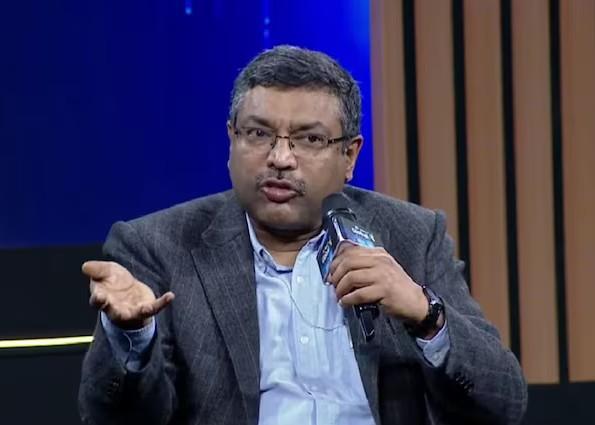
Preparing for China to Dump Electronics Due to US Tariffs: MeitY
The ongoing trade war between the United States and China has taken a new turn, with the Indian government taking proactive steps to prepare for any potential disruption. Amidst the reciprocal tariffs imposed by US President Donald Trump, MeitY Secretary S Krishnan has expressed concerns about the possibility of China dumping electronics products in international markets, including India.
In an interview, Krishnan revealed that the government is evaluating various outcomes to stay ahead of any disruption. The authorities are working closely with manufacturers to mitigate the risk of China dumping electronics products in the Indian market. “We’re speaking to all manufacturers,” Krishnan emphasized, highlighting the importance of preparedness.
The US-China trade war has been ongoing since 2018, with both countries imposing tariffs on each other’s goods. The latest round of tariffs, imposed by the US in August, includes a 10% duty on $300 billion worth of Chinese goods, including electronics. China has retaliated by imposing tariffs on $75 billion worth of US goods, including agricultural products and autos.
The Indian government has been closely monitoring the situation, aware that the trade war could have significant implications for the country’s economy. India is the world’s second-largest electronics market, and any disruption in global supply chains could impact the domestic industry.
The possibility of China dumping electronics products in India is a significant concern for the government. If China were to flood the Indian market with cheap electronics, it could lead to a loss of market share for domestic manufacturers and potentially harm the industry as a whole.
To mitigate this risk, the government is working with manufacturers to ensure that they are prepared for any eventuality. Krishnan emphasized that the government is taking a proactive approach, speaking to all manufacturers to understand their preparedness and identify potential risks.
“We are working closely with manufacturers to ensure that they are prepared for any disruption,” Krishnan said. “We are also monitoring the situation closely and are ready to take necessary measures to protect the interests of Indian manufacturers.”
The Indian government has already taken several steps to prepare for the potential impact of the trade war. In August, the government announced a slew of measures to support the electronics industry, including a reduction in customs duty on certain electronic components and a relaxation of foreign direct investment (FDI) norms.
The government has also been working to promote domestic manufacturing of electronics, with a focus on creating a robust ecosystem for the industry. This includes initiatives such as the Electronics Manufacturing Cluster (EMC) scheme, which aims to create a favorable environment for electronics manufacturing in the country.
The EMC scheme provides support to manufacturers in the form of infrastructure, logistics, and other services. The scheme has been successful in attracting investments from leading electronics companies, including Foxconn, Wistron, and Flex.
The Indian government’s efforts to promote domestic manufacturing and prepare for the potential impact of the trade war are crucial for the industry’s growth. The electronics industry is a significant contributor to the country’s GDP, and any disruption in the supply chain could have far-reaching consequences.
In conclusion, the Indian government is taking a proactive approach to prepare for the potential impact of the US-China trade war on the electronics industry. The possibility of China dumping electronics products in India is a significant concern, and the government is working closely with manufacturers to mitigate this risk.
By promoting domestic manufacturing and working closely with industry stakeholders, the government can ensure that the electronics industry is better prepared for any disruption. As the trade war between the US and China continues to unfold, it is essential for the Indian government to remain vigilant and take necessary measures to protect the interests of Indian manufacturers.






